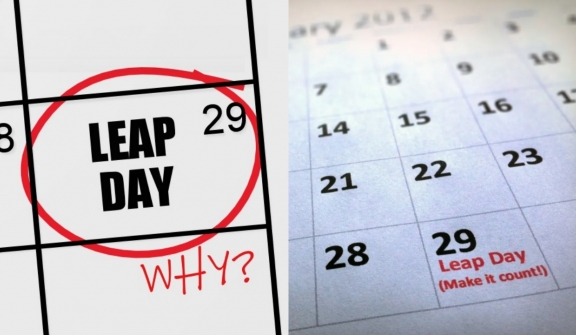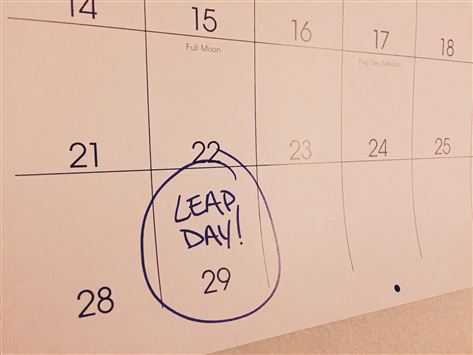
The concept of leap years has piqued curiosity, prompting people to ponder the consequences of a world without them.
What would happen if we pass these additional days placed in our calendars?

Leap years, with their extra day added to February every four years, serve a crucial purpose in keeping our calendars aligned with the Earth's orbit.
A leap year is a peculiar phenomenon. However, upon closer examination, it becomes evident that it is not strange but rather a sensible and logical addition to our calendar system.
During a leap year, an extra day is added to the end of February, extending the typically short month from 28 days to 29 days.

Christopher Sirola, an associate professor at the University of Southern Mississippi School of Mathematics and Natural Sciences, provides a more detailed explanation of why this method works.
Sirola clarifies that the duration of the Earth's orbit, known as a year, is not an exact whole number of days. To be precise, it is approximately 365.2422 days.
This means that if we were to adhere strictly to even numbers of days, either 365 or 366, we would either overcount or undercount the length of a year.
To address this problem, a leap year compensates for the additional fractional time.
By adding an extra day every four years, which amounts to approximately 365 days and six hours, we can maintain synchronization with the Earth's orbit.

The first consequence would be the absence of February 29th, which affects individuals born on that day.
Leap day babies would no longer need to celebrate their birthdays on either February 28th or March 1st for three continuous years since the date simply wouldn't exist.

However, more significant changes would occur over time.
Within just four decades, the alignment between the seasons and the calendar would be off by a staggering 10 days.
This shift would disrupt various aspects of life tied to specific seasons, such as hunting seasons and traditional celebrations.
The Northern Hemisphere might even experience an Australian Christmas, with summer heat in December after the next 700 years.
However, the effects would not be permanent. After roughly 700 years without leap years, the calendar would eventually revert to its original alignment with the season.

The introduction of leap years and leap day itself can be credited to Julius Caesar, who implemented these adjustments in the calendar.
Known as the "Julian Calendar," it was devised to address the uneven number of days a year and maintain synchronization with the seasons.




